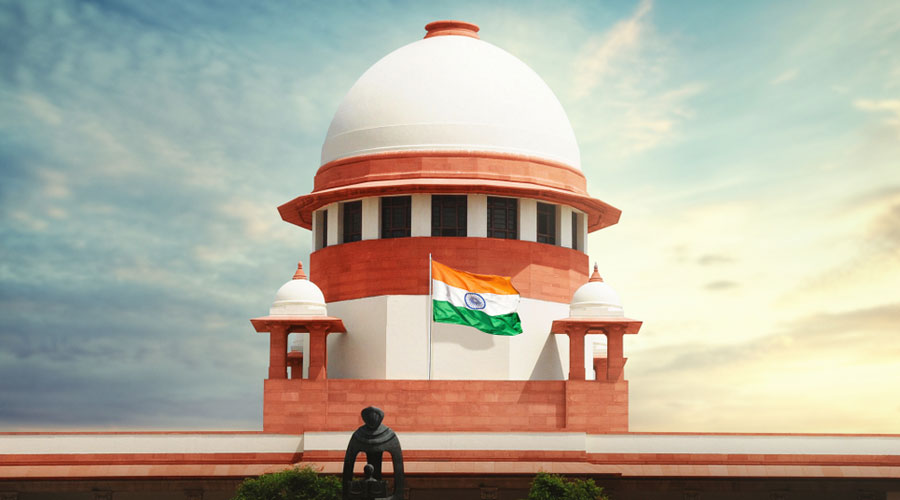All conversions cannot be said to be illegal, the Supreme Court said on Tuesday while agreeing to hear the Madhya Pradesh government’s plea challenging a high court order restraining it from prosecuting interfaith couples who get married without informing the district magistrate.
A bench of Justices M.R Shah and C.T. Ravikumar issued a notice and posted the matter for hearing on February 7.
Solicitor-general Tushar Mehta sought a stay on the high court order but the apex court refused to pass any direction.
Mehta said marriage was used for illegal conversions and “we cannot turn a blind eye” to this.
The high court, in an interim order, had directed the state government not to prosecute under Section 10 of the MP Freedom of Religion Act (MPFRA) adults who solemnise their marriage out of their own volition.
The high court had on November 14 observed that Section 10, which makes it obligatory for a citizen desiring religious conversion to give a prior declaration to the district magistrate, is “in our opinion ex facie, unconstitutional”.
The MPFRA forbids conversions by misrepresentation, allurement, use of threat or force, undue influence and coercion.











